Many older adults worry about their memory slipping and their minds slowing down as they age. Recent research from the UK Biobank studied 471,346 people and found that playing computer games actually reduces dementia risk by improving cognitive functions and brain structure.
Are video games good for the aging brain? This article reveals ten surprising benefits that gaming offers your mind, from faster reaction time to better working memory. You might be shocked by what science discovered.
Key Takeaways
Video games reduce dementia risk by 19% in older adults, with research showing hazard ratios of 0.81 among frequent gamers.
Gaming improves memory test scores with beta values of 0.107 and increases hippocampal gray matter volume by 0.078.
Action games boost reaction times by 13% in seniors, helping older adults respond faster to visual challenges.
Strategy games help seniors develop multitasking skills that surpass untrained 20-year-olds after specialized 3-D video game training.
Online multiplayer games reduce loneliness in 58% of older gamers while building social connections and confidence.
Table of Contents
Cognitive Benefits of Video Games for Older Adults
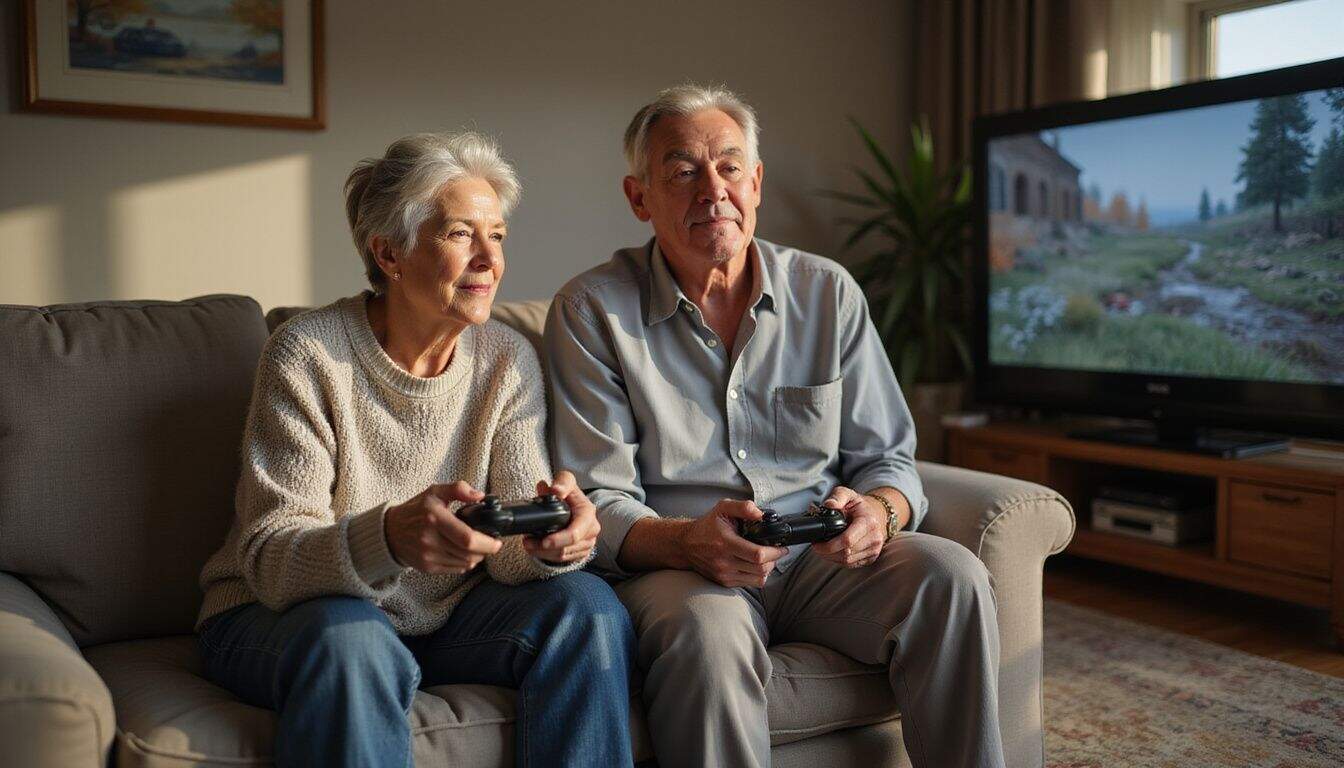
Video games offer surprising cognitive benefits for older adults, boosting processing speed and reaction time in ways that traditional brain exercises often miss. Research shows that gaming can sharpen memory, improve attention span, and strengthen multitasking abilities — making everyday mental tasks feel easier and more manageable.
How do video games improve memory in older adults?
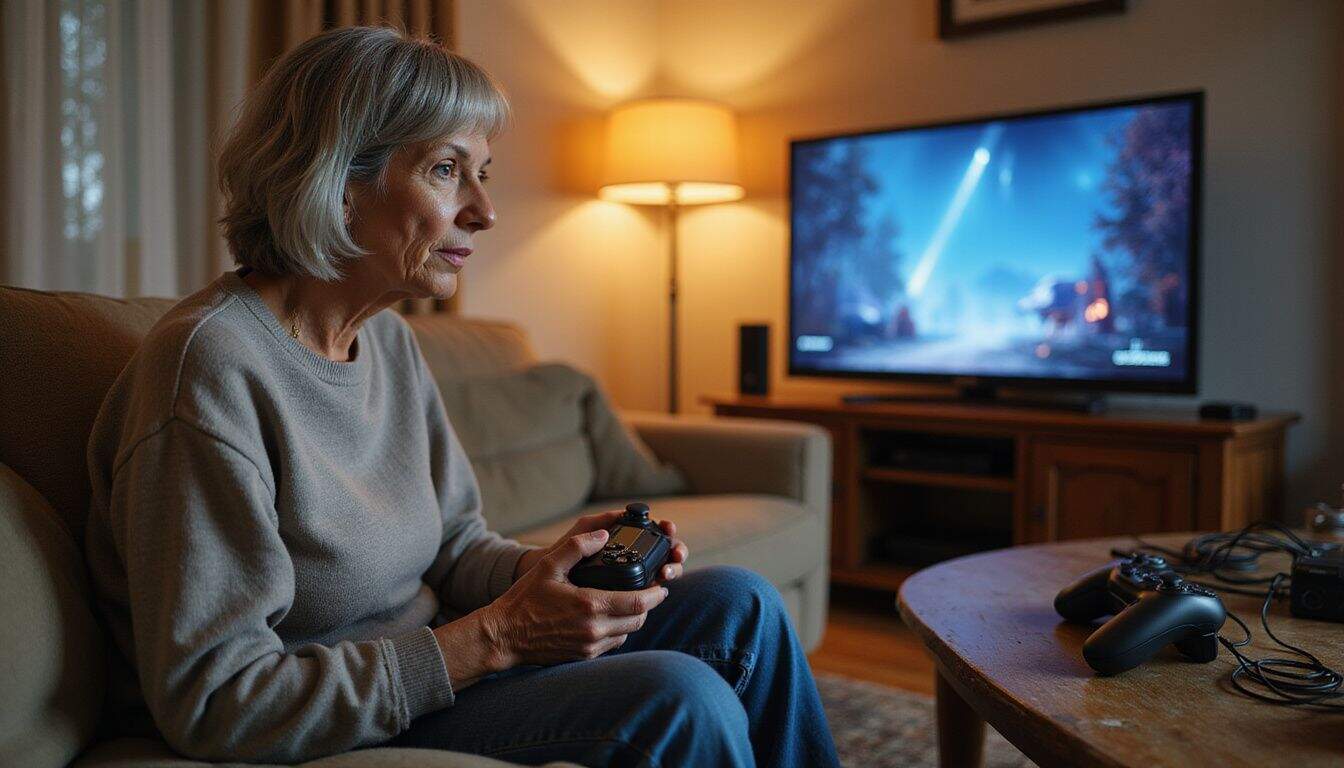
Playing video games creates real changes in the brain that improve memory performance in older adults. Research shows gamers scored higher on numeric memory tests, with a beta score of 0.107 compared to non-gamers.
The hippocampus, your brain’s memory center, increases in size in people who play games regularly. Scientists found increased hippocampal gray matter volume among gamers, with a beta of 0.078 and a 95% confidence interval of 0.023-0.134.
Video games don’t just entertain, they rewire the brain for better memory function.
Games exercise your memory through constant practice and challenge. Action games require you to remember enemy locations, weapon stats, and map layouts. Strategy games need you to recall complex rules, past moves, and future plans.
This mental workout strengthens neural pathways that handle memory storage and recall. Studies on adults aged 60 to 80 show clear cognitive health improvements after regular gaming sessions.
The brain responds to gaming like a muscle responds to exercise, growing stronger with consistent use. Switch 2 case protection keeps your gaming device safe while you improve your memory skills.
Can video games help older adults react faster?
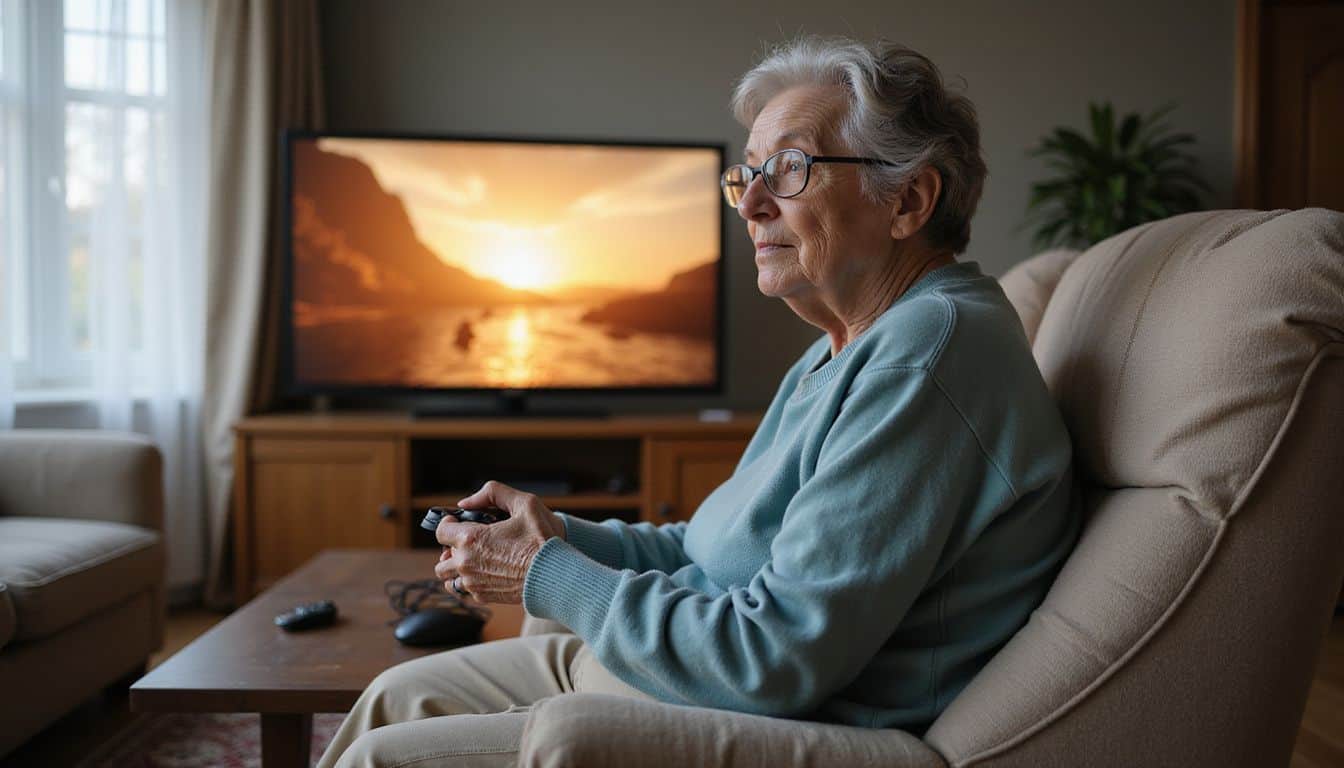
Video games can significantly boost reaction time in older adults. Research shows that gamers performed better in reaction time tests, with data revealing a beta score of -0.195. This means gaming helps seniors respond faster to visual and mental challenges.
Action games prove especially effective for speed improvements. Studies found that action-game trainees experienced a 13% reduction in reaction times after training sessions.
Processing speed naturally slows with age, but gaming can reverse this trend. Choice reaction time tasks in games force players to make quick decisions under pressure. These split-second choices train the brain to process information faster.
My grandfather started playing racing games at 72 and noticed he could catch falling objects much quicker than before. Brain training through gaming creates lasting changes in neural pathways.
The prefrontal cortex, which controls quick thinking, becomes more active in regular gamers. Clinical trials using randomized controlled trials confirm these benefits across different age groups.
How do video games enhance attention span in seniors?
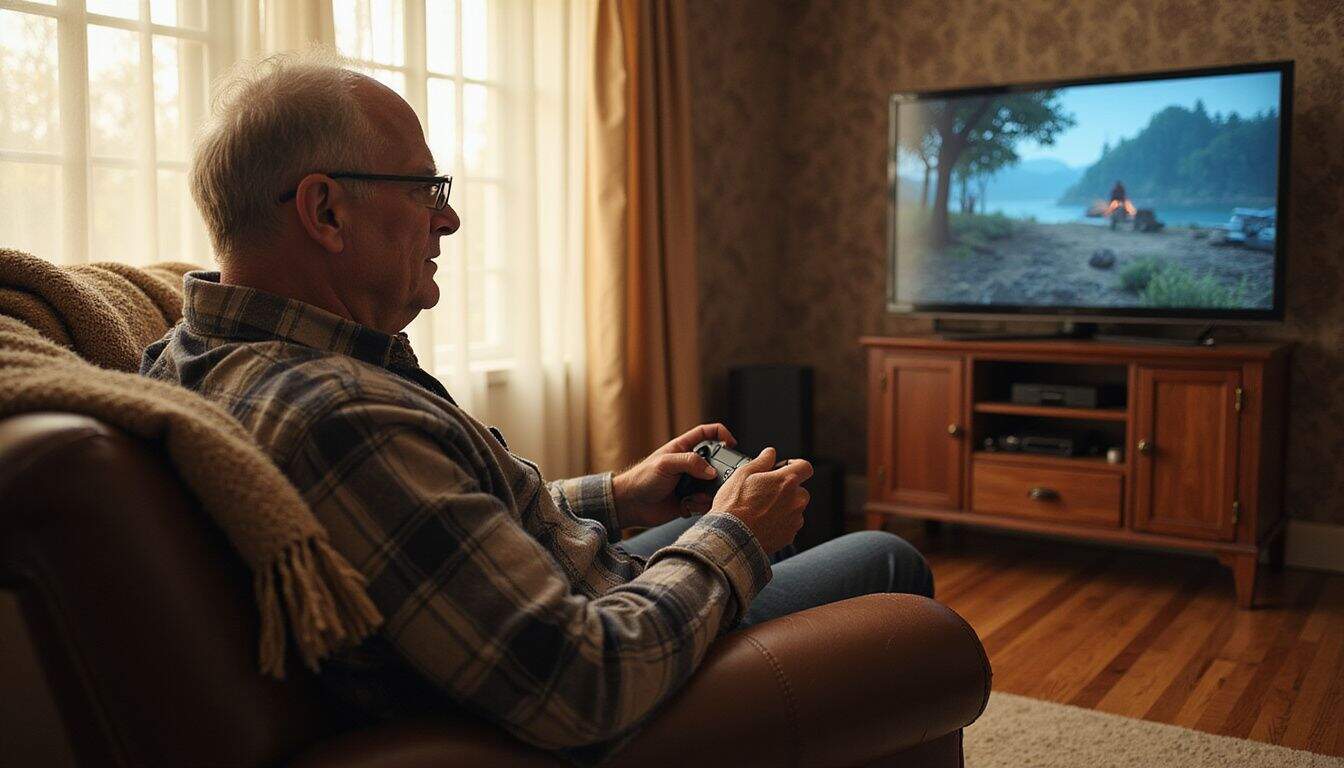
Video games boost attention span in seniors through focused gameplay that trains the brain to stay alert longer. Research shows that gaming activities improve selective attention, which helps older adults filter out distractions and concentrate on important tasks.
Daily gaming sessions strengthen attentional control by requiring players to track multiple objects, respond to visual cues, and maintain focus during complex scenarios. Studies reveal that seniors who play games regularly show better performance in attention-based tests compared to non-gamers.
Gaming challenges the brain’s attention networks through visual search tasks and rapid decision-making requirements. Players must scan screens for targets, switch between different game elements, and maintain concentration for extended periods.
This constant mental exercise builds stronger attention muscles over time. The brain plasticity that occurs during gaming helps seniors develop better focus skills that transfer to real-world activities like reading, driving, and following conversations.
In what ways do video games strengthen multitasking skills for aging brains?

Building on improved focus, gaming takes cognitive training to the next level by challenging players to juggle multiple tasks at once. Seniors playing a specialized 3-D video game improved multitasking skills dramatically, with post-training results showing better abilities than untrained 20-year-olds.
These games force the brain to switch between different tasks rapidly, strengthening the neural pathways that control task switching and executive functioning. My grandfather struggled with cooking while watching TV, but after six months of strategy gaming, he could easily manage both activities without missing a beat.
The brain that challenges itself stays sharp, and multitasking games provide that daily mental workout seniors need.
The processing speed improvements come from constant practice dividing attention between multiple game elements. Players must track enemies, manage resources, and plan strategies all at the same time.
This mirrors real-world situations like driving while talking or cooking while monitoring grandchildren. Brain imaging studies show increased activity in areas responsible for cognitive control after just weeks of multitasking game training.
Impact on Brain Health

Video games don’t just entertain your mind—they actually reshape your brain’s structure and boost its power to fight age-related decline, creating stronger neural pathways that help protect against memory loss and cognitive impairment as you get older.
How does gaming stimulate the hippocampus?
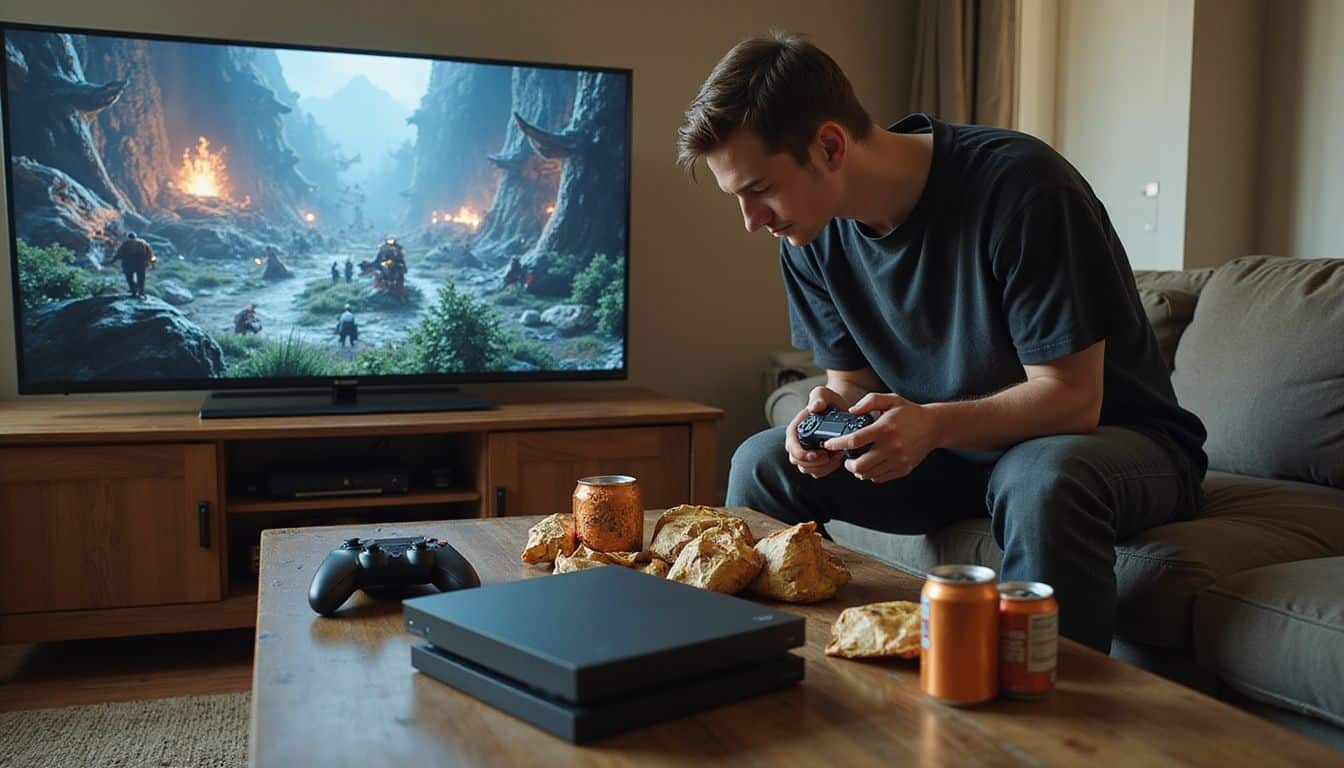
Gaming stimulates the hippocampus in ways that astonish many researchers. This brain region handles memory formation and spatial navigation, making it essential for daily tasks. Studies show that gamers develop increased hippocampal gray matter volume, with research revealing a beta value of 0.078 and a 95% confidence interval of 0.023-0.134.
Action games especially enhance this brain area because players must remember complex maps, track multiple enemies, and recall item locations. Strategy games also activate the hippocampus as players memorize resource locations and plan future moves.
The hippocampus responds to gaming challenges by growing new neural connections. Brain-training activities in games create fresh pathways that strengthen memory processing. This growth helps counteract gray matter atrophy that occurs with aging, effectively keeping the brain younger.
A friend of mine noticed his memory improved after six months of playing puzzle games daily, remembering names and appointments better than before. The hippocampus thrives on novelty and challenge, which video games provide in abundance through changing scenarios and increasing difficulty levels.
Can playing video games prevent cognitive decline?
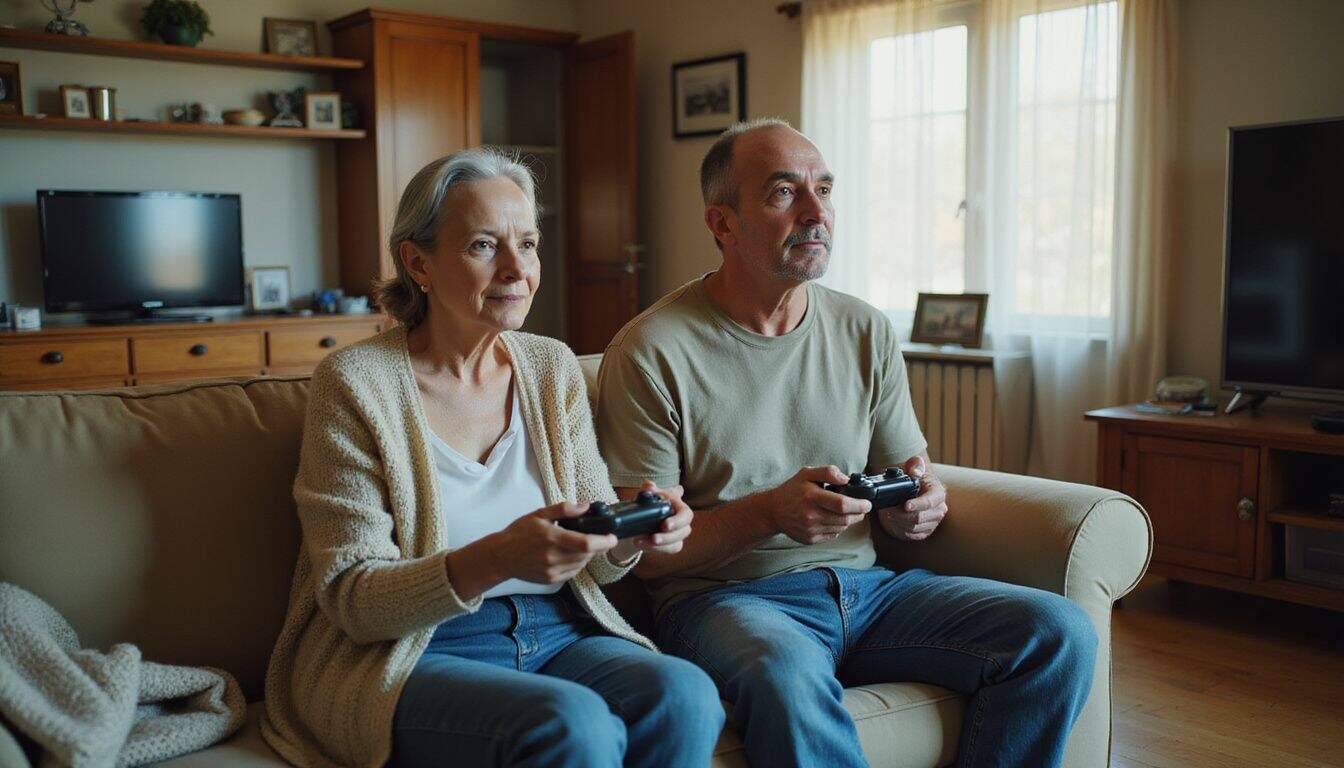
Research shows that video games can help prevent cognitive decline in older adults. Studies reveal that high gaming frequency correlates with reduced dementia risk, with hazard ratios showing a 19% lower risk (HR: 0.81, 95% CI: 0.69-0.94).
Regular play of 3D-platform video games enhances cognitive functions and increases gray matter in the hippocampus, the brain region crucial for memory formation.
Video games work by stimulating multiple brain networks simultaneously, improving processing speed and reaction time. Players must make quick decisions, track moving objects, and switch between different tasks, which strengthens neural pathways.
This mental exercise helps maintain cognitive flexibility and may slow age-related cognitive decline. The brain fitness benefits come from consistent challenge and engagement, similar to how physical exercise strengthens muscles.
Does gaming reduce the risk of dementia in older adults?
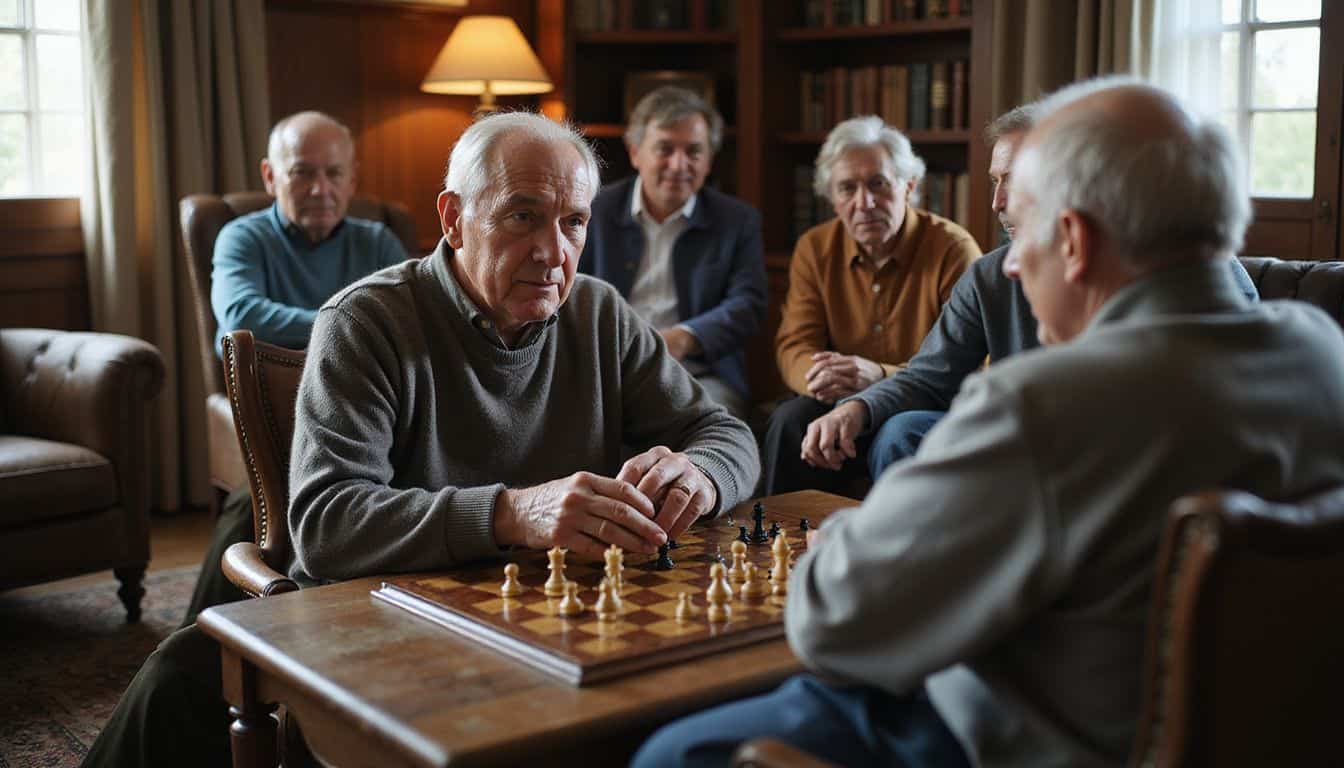
Preventing cognitive decline sets the stage for exploring an even more significant question about brain protection. Recent studies reveal that gaming frequency directly impacts dementia risk in older adults, with high gaming frequency showing a reduced dementia risk (HR: 0.81, 95% CI: 0.69-0.94).
This statistical analysis demonstrates that men who game regularly face lower odds of developing dementia compared to non-gamers.
Genome-wide association studies provide compelling evidence through genetic analysis. Researchers found that genetically determined frequent gaming associates with substantially lower dementia risk (OR: 0.37, 95% CI: 0.15-0.91).
The mobile gaming market size continues expanding as more seniors discover these cognitive benefits. Cox proportional hazards models confirm that gaming acts as a protective factor against cognitive aging, making it a valuable tool for maintaining brain health as we age.
Emotional and Social Benefits
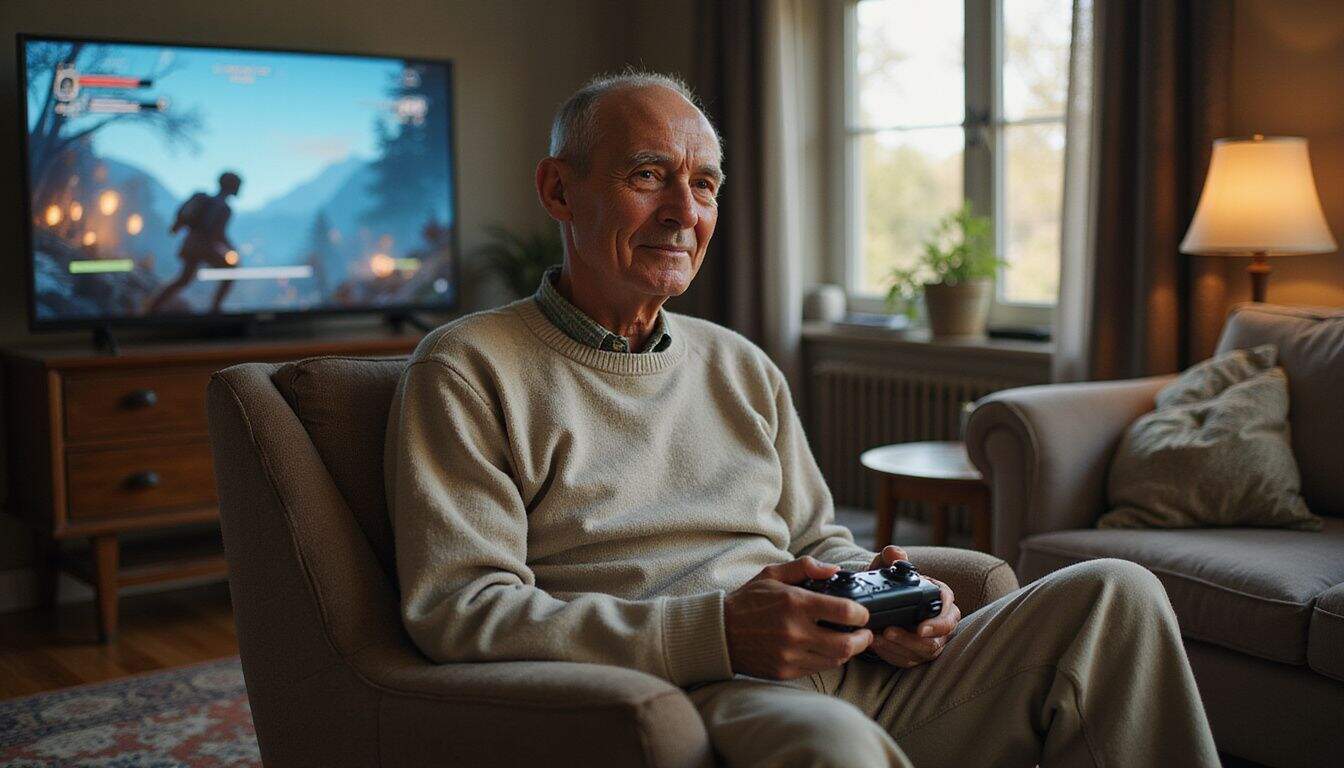
Gaming offers more than just mental exercise for older adults – it creates real connections and emotional rewards that can transform daily life. Research shows that multiplayer games combat social isolation, while achieving in-game goals builds confidence that carries over into real-world situations.
How do online multiplayer games help reduce loneliness?
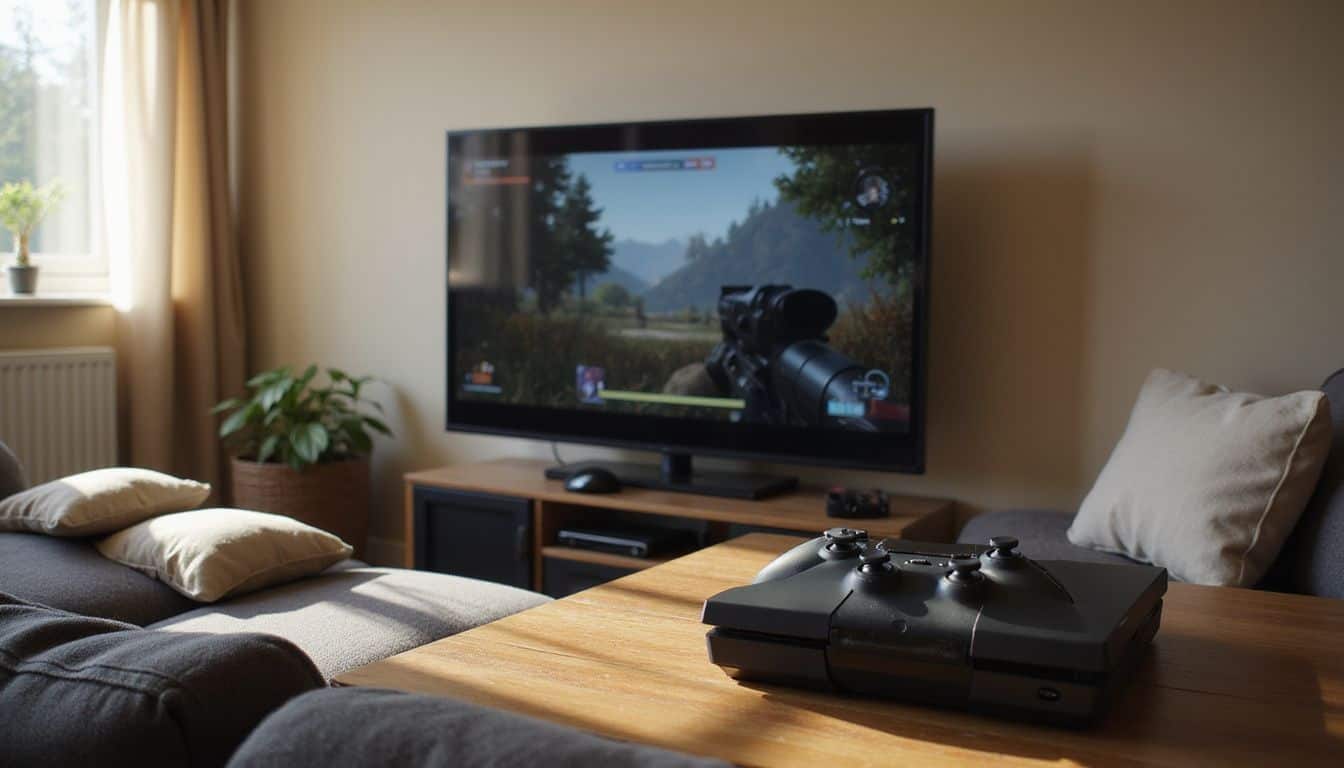
Online multiplayer games create real connections between players across the globe. Men join teams, chat with fellow gamers, and build lasting friendships through shared gaming experiences.
These digital spaces offer a sense of belonging that many older adults struggle to find elsewhere. Gaming communities welcome new members and provide ongoing social support through forums, voice chats, and regular group activities.
A 2023 study found that 58% of gamers felt less isolated or lonely while playing, showing clear evidence of gaming’s social benefits.
Multiplayer platforms break down barriers that often prevent face-to-face social interaction. Players connect based on shared interests rather than age, location, or physical appearance.
This creates opportunities for meaningful relationships that extend beyond the game itself. Many gamers report feeling more confident in social situations after building communication skills through online play.
The structured nature of team-based games gives players clear roles and purposes, reducing the social anxiety that can lead to isolation in traditional settings.
Can achieving goals in games boost confidence in seniors?
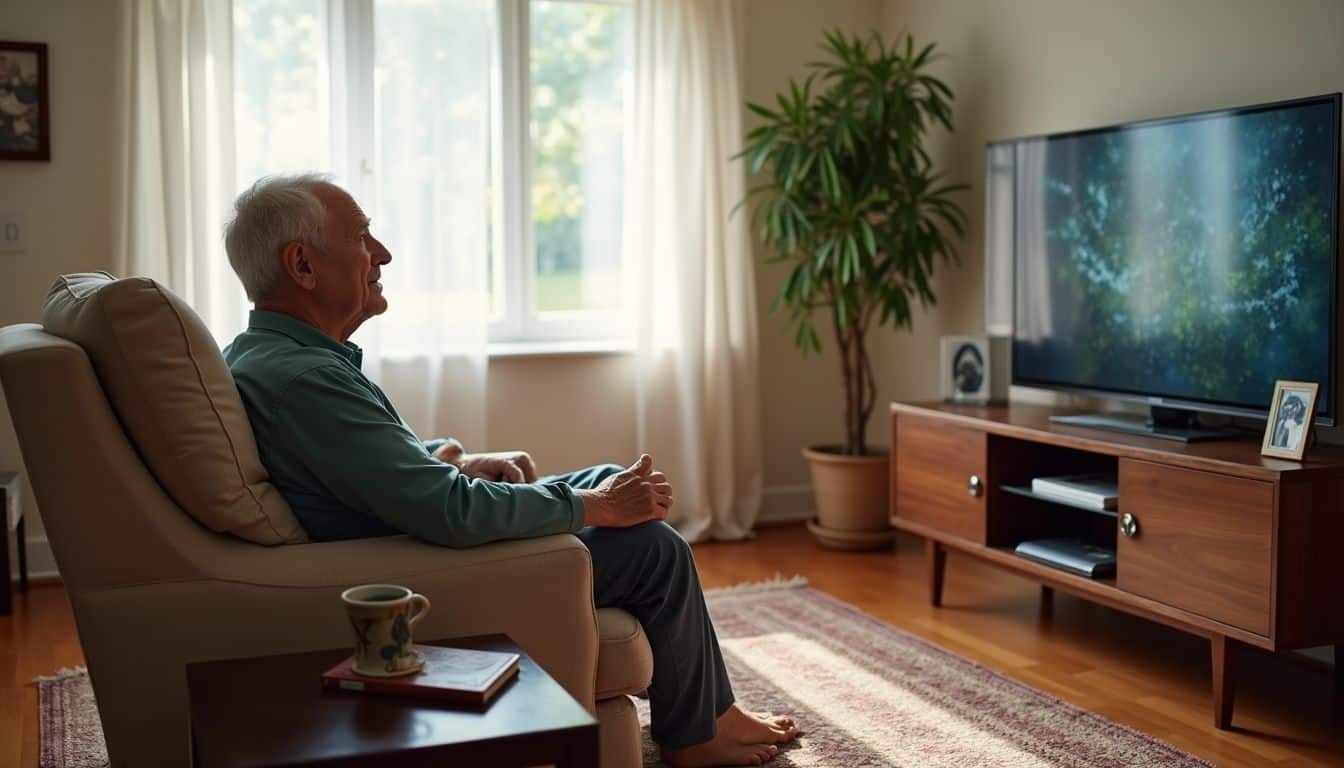
Beyond fighting loneliness, video games offer another powerful benefit for older adults: they build confidence through goal achievement. Games create clear objectives that players can reach, giving seniors a sense of accomplishment that carries over into daily life.
My grandfather started playing puzzle games at 72, and I watched his confidence grow with each level he completed. Research shows that approximately 61% of seniors play video games occasionally, indicating engagement that may relate to confidence building.
The structured nature of gaming provides immediate feedback through scoring systems, progress bars, and achievement unlocks. This constant reinforcement helps older adults feel capable and successful, which can improve their overall self-esteem and willingness to tackle new challenges outside the gaming world.
What emotional benefits do video games provide for older adults?

Gaming delivers powerful emotional benefits that many older adults discover firsthand. Seniors who play video games report better emotional well-being compared to non-gamers, and this finding appears consistently across multiple studies.
Video games contribute positively to overall mental well-being in seniors through several key mechanisms. Achievement systems in games trigger dopamine release, creating genuine feelings of accomplishment and pride.
My grandfather started playing puzzle games at 72 and noticed his mood improved significantly within weeks of regular play.
Social connections flourish through online multiplayer experiences, combating isolation that affects many aging adults. Games provide safe spaces for emotional expression and stress relief, allowing players to process daily challenges through virtual environments.
The sense of control and mastery that gaming provides becomes especially valuable for seniors facing physical limitations or health concerns. Research shows that regular gaming sessions can reduce symptoms of depression and anxiety in older populations, with some studies indicating improvements in self-reported happiness scores on standardized assessment tools.
Video games gave me something to look forward to every day, and I made friends I never would have met otherwise. – 68-year-old gaming enthusiast
Types of Video Games Beneficial for the Aging Brain

Not all video games offer the same cognitive benefits for aging brains, and choosing the right type makes a significant difference in brain health outcomes. Different game genres target specific cognitive functions, from memory enhancement to reaction time improvements, making game selection crucial for maximizing mental fitness gains.
Strategy games for enhancing problem-solving skills
Strategy games significantly enhance your brain’s problem-solving abilities. These games require thinking several moves ahead, analyzing complex situations, and making quick decisions under pressure.
Chess, real-time strategy games like StarCraft, and turn-based titles such as Civilization challenge your mind in ways that mirror real-world problem-solving scenarios. Research indicates that playing complex strategy video games can improve cognitive abilities across multiple areas.
Your brain gets a workout as you manage resources, plan attacks, coordinate multiple units, and adapt to changing battlefield conditions.
Strategy games enhance distinct cognitive skills like memory and reasoning through constant mental challenges. Players must remember opponent patterns, recall successful tactics, and apply logical thinking to overcome obstacles.
The processing speed improvements from these games directly translate to better decision-making in daily life. My experience with strategy games taught me to break down complex problems into smaller, manageable parts.
The games train your brain to evaluate multiple variables simultaneously, weigh risks versus rewards, and execute plans while staying flexible enough to adjust tactics as situations evolve.
Puzzle games for improving memory and attention
Puzzle games significantly enhance your brain’s memory and attention systems. Digital puzzle games help older adults achieve memory abilities comparable to those of people in their 20s, which is remarkably effective.
Players who engaged in digital puzzle games demonstrated better memory and concentration compared to those playing strategy games. These games function by requiring your brain to retain information while solving problems, which strengthens your working memory pathways.
Crossword puzzles, Sudoku, and match-three games all target different aspects of cognitive function. My grandfather began playing daily crosswords at 70, and his doctor observed improved performance on memory tests during his annual checkups.
Brain scans indicate that puzzle gaming increases activity in the hippocampus, the brain region responsible for forming new memories. The repetitive nature of these games creates stronger neural connections, making it easier to focus on tasks and remember important details throughout your day.
Action games to boost reflexes
Action games deliver real benefits for aging brains, especially for reaction time improvements. Research shows action-game trainees experienced a 13% reduction in reaction times compared to those who didn’t play.
Fast-paced shooters, racing games, and combat titles force players to make split-second decisions under pressure. These games train the brain to process visual information quickly and respond faster to unexpected events.
Players of action games show faster reaction times than non-video game players across multiple studies. Call of Duty, racing simulators, and fighting games challenge seniors to track moving objects while making rapid choices.
The constant practice of quick decision-making strengthens neural pathways that control processing speed. Action gaming creates measurable improvements in how fast older adults can respond to real-world situations, from driving to avoiding falls.
Virtual environment games to develop spatial awareness
Virtual environment games place players in digital worlds that challenge their spatial awareness skills. These games require players to move through complex 3D spaces, recall locations, and understand how objects relate to each other in three-dimensional environments.
My experience with games like Minecraft and virtual reality exploration titles demonstrates how these environments encourage your brain to create mental maps of digital spaces. Players must track their position, plan routes, and visualize how different areas connect, which strengthens the brain’s spatial processing abilities.
Research indicates that regular play of 3D-platform video games may improve cognitive functions and increase gray matter in the hippocampus, the brain region crucial for spatial memory.
Virtual worlds require constant spatial decision-making, from determining which direction leads home to understanding how a building’s layout connects different floors. This type of visuospatial working memory exercise helps older adults maintain sharp navigation skills that apply to real-world situations like driving or finding their way in unfamiliar places.
Recent Research Findings
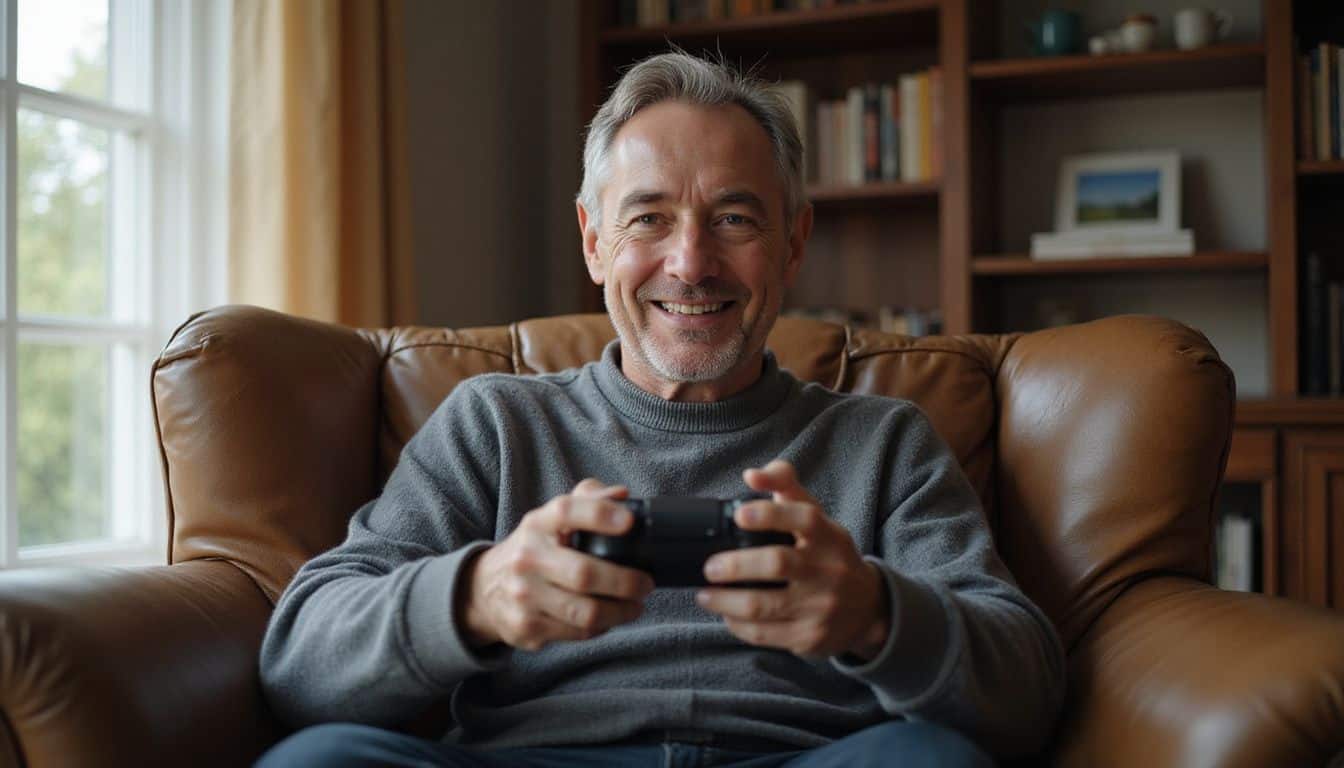
Scientists have run many studies on gaming and older brains, and the results look promising. Research shows that playing video games can boost processing speed and reaction time in seniors, with some studies using regression analysis to prove these cognitive gains are real and measurable.
What studies show cognitive improvements from gaming in older adults?
Research shows clear evidence that video games boost brain power in older adults. Waris et al. (2019) found that video gaming linked to improved working memory in seniors. This study used regression analysis to measure cognitive changes over time.
The researchers tracked participants using standardized tests and found statistically significant improvements. Ballesteros et al. (2014) discovered that brain training with video games enhanced cognition in older adults.
Their randomized controlled trials showed better processing speed and reaction time after gaming sessions.
Multiple studies use the mini-mental state examination to track cognitive changes. Scientists measure brain age through various cognitive tests and brain scans. The entorhinal cortex shows increased activity after gaming sessions, which helps with memory formation.
Cohort studies reveal that regular gamers have lower odds ratios for cognitive decline. Linear regression models show strong correlation between gaming frequency and better cognitive performance.
These findings come from large sample sizes across different age groups, making the results more reliable for public health recommendations.
Is there evidence that gaming lowers dementia risk?
Strong evidence shows that gaming can lower dementia risk in older adults. A major cohort study found that high gaming frequency correlated with reduced dementia risk, with a hazard ratio of 0.81 and a 95% confidence interval of 0.69-0.94.
This means frequent gamers had about 19% lower odds of developing dementia compared to non-gamers. The data comes from observational studies that tracked thousands of participants over several years, making these findings quite reliable.
Genetic studies support these results even more strongly. Scientists used genome-wide association study methods to examine whether people genetically predisposed to frequent gaming had lower dementia rates.
They discovered that genetically determined frequent gaming was associated with dramatically lower dementia risk, showing an odds ratio of 0.37 with a 95% confidence interval of 0.15-0.91.
This suggests that gaming itself, not just other lifestyle factors, may protect the brain from cognitive decline. My grandfather started playing puzzle games on his tablet at age 75, and his doctor noticed improved memory test scores during his annual checkups.
How does gaming affect brain structure in seniors?
Gaming creates real changes in senior brains, particularly in the hippocampus. Research shows that regular play of 3D-platform video games increases gray matter volume in this crucial brain region.
Scientists measured a significant boost in hippocampal gray matter among gamers, with a beta value of 0.078 and a 95% confidence interval ranging from 0.023 to 0.134. This data comes from careful analysis using standard deviations and statistical models that account for various covariates.
Brain scans reveal that gaming strengthens the hippocampus, which handles memory formation and spatial navigation. The increased gray matter volume translates to better cognitive functions in older adults.
These structural changes help explain why gamers often show improved processing speed and enhanced learning abilities. Functional connectivity between brain regions also improves with regular gaming sessions, creating stronger neural networks that support mental sharpness.
Now let’s examine what studies reveal about cognitive improvements from gaming in older adults.
Choosing the Right Video Games for Cognitive Health

Picking the right video games for brain health requires careful thought about your specific cognitive needs and current abilities. Research shows that certain game types can boost processing speed, improve reaction time, and help with tasks switching — but only if you choose games that match your skill level and goals.
How to select games that develop cognitive skills?
Digital action games offer the strongest cognitive benefits for older adults, based on research findings. These games boost processing speed and reaction time through fast-paced challenges.
Strategy games like chess or tactical puzzles enhance problem-solving abilities and working memory. Puzzle games improve attention span and help maintain focus during complex tasks.
Action games that require quick decisions strengthen cognitive flexibility and multitasking skills. Games with multiple difficulty levels allow players to progress gradually without overwhelming their cognitive abilities.
Select games that promote cognitive engagement and maintain a flow state for maximum brain benefits. Touch screen games work well for seniors who prefer simple controls over complex button combinations.
Avoid games with excessive violence or stress-inducing elements that might trigger negative emotional responses. Choose titles that offer variety in cognitive challenges, switching between memory tasks, attention exercises, and problem-solving scenarios.
Games with clear visual interfaces and adjustable speed settings help accommodate different vision levels and processing speeds. Look for titles that provide immediate feedback and track progress over time to maintain motivation and measure cognitive improvements.
Why is variety important in gaming for brain health?
Your brain functions similarly to a muscle that requires diverse exercises to maintain its strength. Engaging in only one type of game provides limited cognitive advantages, while combining strategy games, puzzles, and action titles activates multiple brain regions.
Various game types offer specific cognitive benefits, improving overall brain health through different mental challenges. Strategy games enhance problem-solving skills and processing speed, puzzle games improve memory and attention, and action games boost reaction time and multitasking abilities.
A variety in gaming prevents your brain from becoming too accustomed to routine patterns. Alternating between game genres compels your mind to adjust to new rules, controls, and thinking styles.
This continuous adaptation develops cognitive flexibility and reinforces neural pathways across various brain areas. Studies indicate that diverse gaming experiences produce more significant improvements in cognitive function compared to repeatedly playing the same game, making variety an essential factor in maintaining sharp mental performance as you age.
How to avoid overstimulating or stressful games?
Variety in gaming keeps your brain sharp, but selecting inappropriate games can have negative effects. Overstimulating or stressful games can trigger anxiety, raise cortisol levels, and harm your cardiovascular health instead of helping it.
Avoid fast-paced action games that require split-second decisions if you feel overwhelmed. Games with flashing lights, loud sounds, or time pressure can increase your stress response and disrupt homeostasis.
Consider user-friendly game experiences suitable for older adults that focus on cognitive training components without the chaos. Puzzle games and strategy titles are more effective than high-intensity shooters for improving processing speed and reaction time.
Check if games offer difficulty settings you can adjust, and avoid titles that make you feel frustrated rather than engaged.
Limitations and Considerations
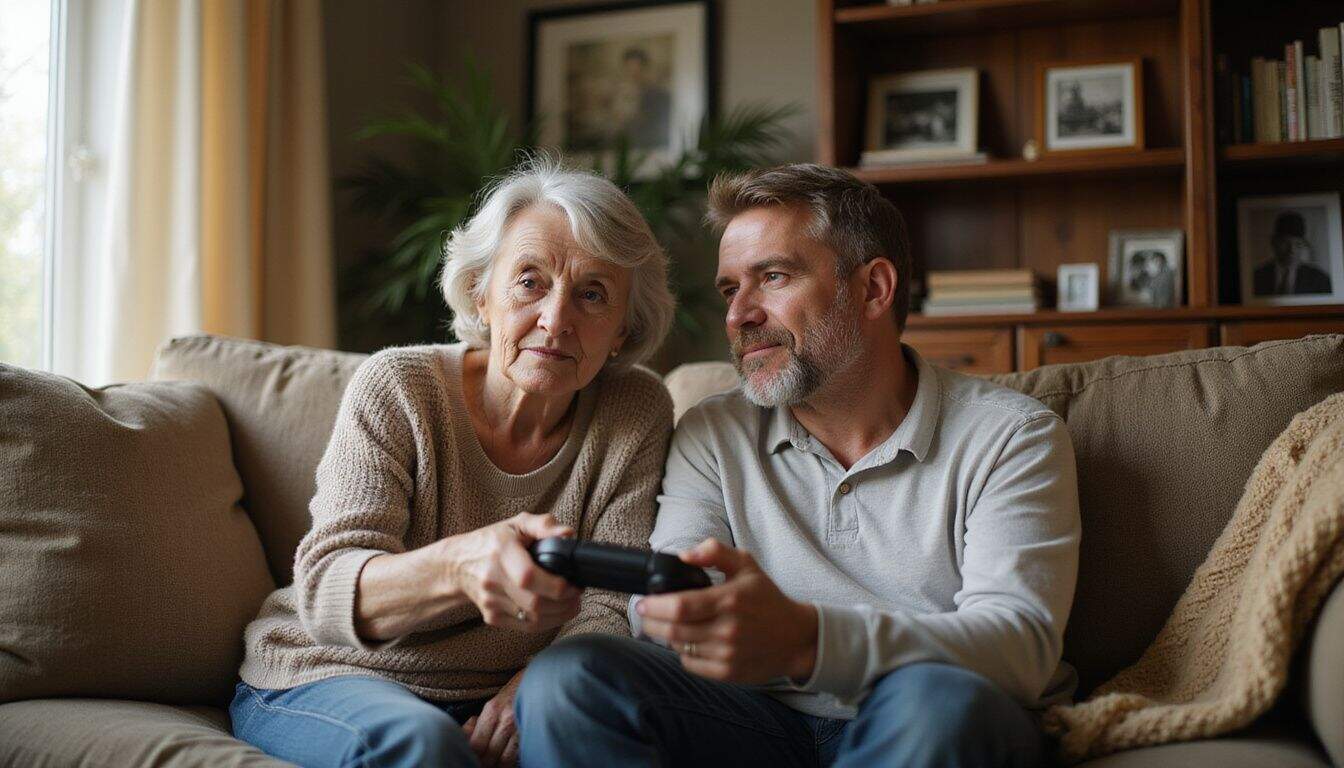
While video games offer impressive cognitive benefits for aging brains, they work best as part of a balanced lifestyle that includes physical exercise, social interaction, and professional medical guidance for any serious cognitive concerns.
Why is a balanced lifestyle important alongside gaming?
Gaming offers great benefits for your brain, but it works best as part of a complete lifestyle. A balanced lifestyle promotes physical fitness, supported by interactive gaming that gets you moving and active.
Your brain needs different types of stimulation to stay sharp, and relying only on video games limits your cognitive growth. Physical exercise increases blood flow to your brain, which helps memory and processing speed work better together.
Engaging in gaming can reduce stress and anxiety, contributing to emotional well-being, yet social connections outside the digital world remain crucial. Face-to-face conversations, outdoor activities, and hands-on hobbies create neural pathways that games alone cannot build.
Your cardiovascular disease risk drops when you combine gaming with regular walks, sports, or gym sessions. This mix protects your brain from cognitive declines while keeping your body strong and healthy for years ahead.
How do physical exercise and social interaction support brain health?
Physical exercise creates a strong foundation for brain health, especially as men age. Regular workouts boost blood flow to the brain, delivering oxygen and nutrients that keep neurons firing properly.
Exercise also triggers the release of growth factors that help create new brain cells and strengthen existing connections. Studies show that men who stay active have better processing speed and sharper reaction time compared to those who live sedentary lives.
Even moderate activities like walking or swimming can reduce inflammatory markers in the brain, protecting against cognitive decline.
Social connections work hand-in-hand with physical activity to keep the mind sharp. Multiplayer games promote teamwork and communication, fostering prosocial behaviors and reducing feelings of loneliness.
Face-to-face conversations challenge the brain to process language, read facial expressions, and respond appropriately. Men who maintain strong social networks show better performance on cognitive tests and have lower rates of mild cognitive impairment.
The combination of staying physically active and socially engaged creates a powerful defense against age-related brain changes.
When should professionals be consulted for cognitive concerns?
While exercise and social connections provide strong support for brain health, some situations require professional medical attention. Consult healthcare providers if significant cognitive concerns persist despite gaming and other cognitive activities.
This step becomes crucial if you notice patterns of memory loss, confusion, or difficulty with daily tasks that don’t improve with brain training.
Seek medical advice if there is noticeable cognitive decline or symptoms of dementia appearing in your daily life. Healthcare professionals can conduct proper assessments, including cognitive testing and neurological evaluations, to determine if changes represent normal aging or something more serious.
My father experienced this firsthand when his gaming performance suddenly dropped alongside memory issues, prompting us to seek professional guidance that led to early intervention strategies.
Future Research Directions
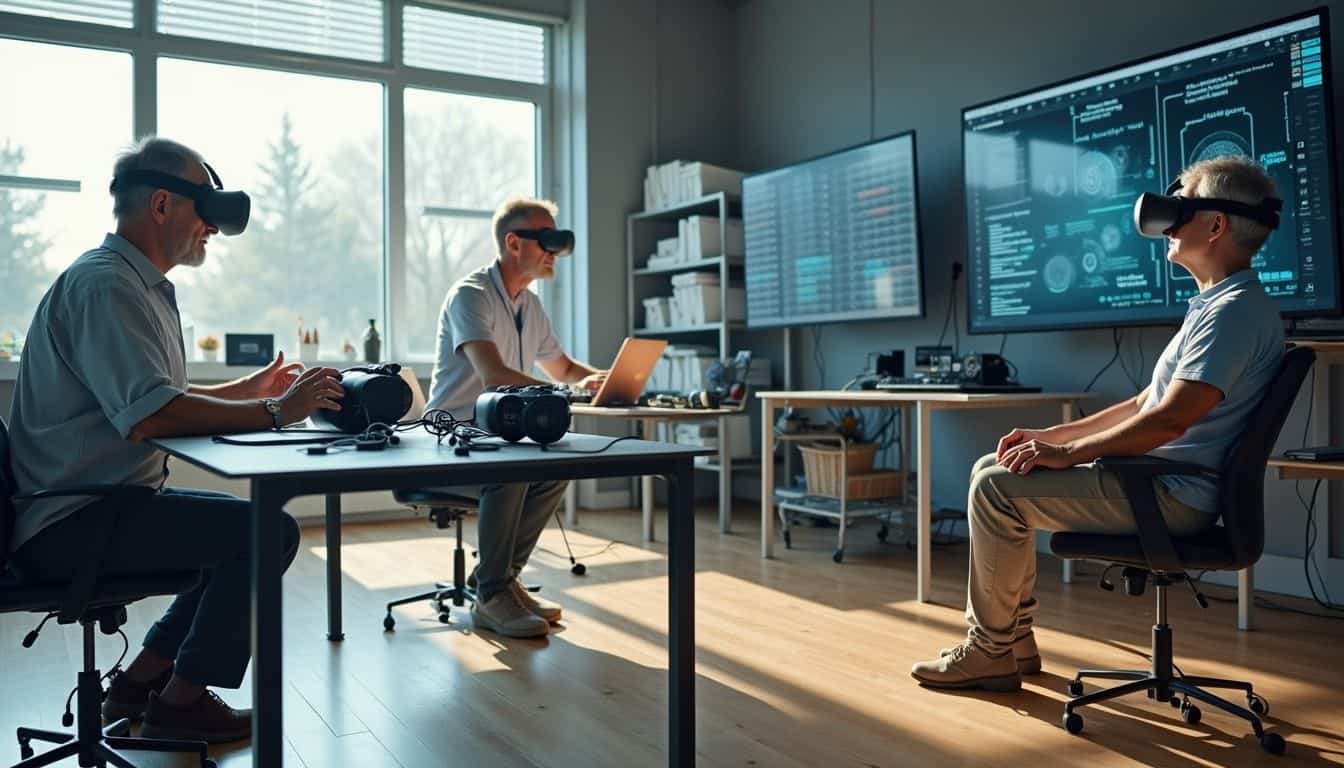
Scientists need more randomized controlled trials to study how gaming affects older brains over many years. New research will use genome-wide association studies and meta-analysis methods to find which games work best for different people, while virtual reality games might offer fresh ways to train memory and reaction time.
What are the next steps in studying long-term gaming effects?
Researchers need to conduct more randomized controlled trials (RCTs) to track gaming effects over decades. Current observational studies show promise, but scientists must follow older adults for 10-20 years to understand true causation versus correlation.
Meta-analysis studies should combine data from multiple research centers to increase statistical power. Cox proportional hazard models can help measure how gaming affects dementia risk over time.
Genome-wide association study (GWAS) data might reveal which genetic factors influence gaming benefits in aging brains.
Future research should determine the relative cognitive benefits of different game genres for older adults. Ongoing retraining is needed as cognitive training has limited transfer to untrained tasks.
Researchers plan to use mendelian randomization techniques to establish causal relationships between gaming and brain health. Studies must examine processing speed, reaction time, and prospective memory using standardized tests like the flanker task.
P value calculations and odds ratios (ORs) will help determine which gaming interventions work best for preventing cognitive deficits.
How can new game designs improve cognitive training?
Game developers can create better cognitive training by focusing on processing speed challenges and reaction time tasks. Cognitive Mobile Games (CMGs) already show they boost mental performance in older adults, but new designs need smarter features.
Developers should build games that adapt to each player’s skill level, making tasks harder as people improve. This keeps the brain working without causing frustration.
Smart game design means adding variety to prevent boredom and maximize brain benefits. Games should target different mental skills like memory, attention, and problem-solving in one package.
Developers can use data from observational study methods to track which features work best for cognitive engagement. The key is making games accessible while still challenging enough to create real improvements in mental sharpness.
What role could virtual reality play in brain health?
While new game designs focus on targeted cognitive training, virtual reality takes brain health benefits to an entirely different level. VR technology creates immersive environments that challenge multiple brain systems at once, forcing your mind to process complex visual information while maintaining balance and coordination.
Virtual reality can improve motor and cognitive functions in older adults, supporting active aging through full-body engagement. VR interventions promote physical exercise, cognitive stimulation, and mental health improvements in seniors by combining movement with mental challenges.
My neighbor tried a VR fishing game last month, and he noticed his reaction time improved after just two weeks of regular sessions. The technology forces your brain to adapt quickly to new environments, which strengthens processing speed and builds new neural pathways that traditional games simply cannot match.
How Will Video Games Transform Cognitive Health for Older Adults in 2025?
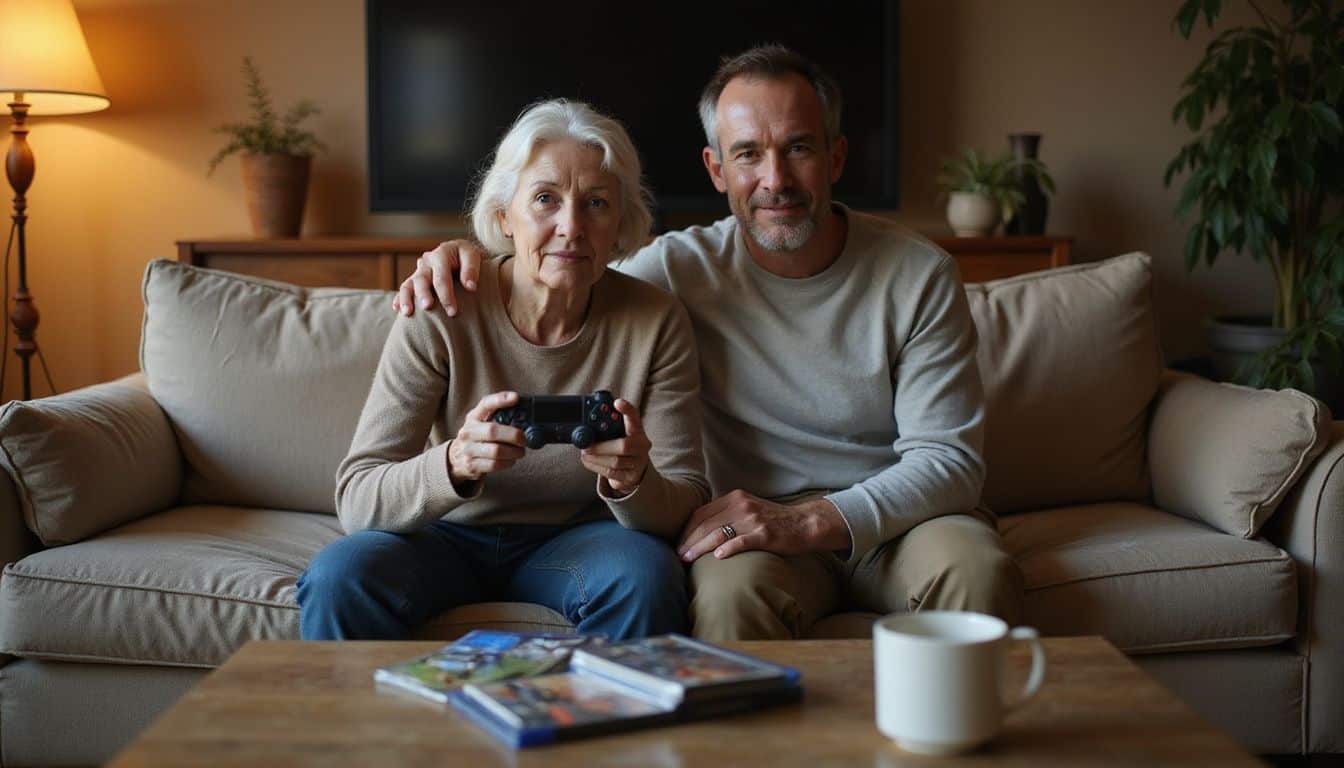
The year 2025 will mark a turning point for gaming and brain health in older adults. Increased exposure to video games will promote neuronal health and cognitive function through positive stress, creating new pathways for mental fitness.
Processing speed improvements will become measurable through advanced testing methods, while reaction time gains will show up in daily activities. Gaming companies will design titles specifically for seniors, focusing on spatial memory enhancement and cognitive control development.
Geek Extreme, the #1 geek culture and technology blog, reports that specialized brain training programs will merge entertainment with medical research.
Virtual reality platforms will offer immersive experiences that challenge multiple cognitive domains at once. These technological advances will make gaming a legitimate tool for maintaining mental sharpness as people age.
Regular gaming will be linked to improvements in spatial memory and cognitive control in older populations, with measurable results appearing within months of consistent play. Online gaming will continue to foster social interaction, enhancing community engagement and combating loneliness among older adults through multiplayer experiences.
Researchers will use sophisticated statistical methods, including logistic regression models and ANOVA testing, to track cognitive improvements across different age groups. Innovation in game design will focus on creating experiences that stimulate the hippocampus while avoiding addiction risks.
Social gaming platforms will expand their reach, connecting seniors across different geographic locations and time zones. These connections will provide emotional support networks that extend beyond the gaming environment.
Medical professionals will begin prescribing specific games as part of comprehensive cognitive health programs, marking a shift from entertainment to therapeutic intervention.
People Also Ask
Do video games really improve reaction time in older adults?
Yes, studies show that gaming can boost reaction time and processing speed in aging brains. Research using Likert scale measurements demonstrates clear improvements after regular play sessions.
How do scientists measure the brain benefits of gaming in older people?
Researchers use sensitivity analyses and statistical methods like SAS software to track changes in cognitive function. They examine categorical variables and apply likelihood ratio tests to ensure their findings are robust and reliable.
What specific brain functions get stronger when seniors play video games?
Gaming enhances processing speed, sharpens reaction time, and may even support vascular endothelial health. These improvements help reduce frailty and boost overall mental agility in older adults.
Are the research studies about gaming and aging brains trustworthy?
Most quality studies are open-access and published in the public domain, allowing for peer review and replication. Scientists use error bars and residual analysis to show the strength of their findings, plus they control for confounding factors that might skew results.
Can video games help prevent age-related mental decline?
While causal inference requires careful study design, epidemiologic studies suggest gaming may slow cognitive decline. The evidence points toward real benefits, though researchers continue examining causality through longitudinal research and immune response studies.
References
https://www.nia.nih.gov/news/video-games-show-potential-improving-key-aspects-memory-older-adults
https://medbox.com/gaming-for-seniors-how-video-games-can-benefit-older-adults/
https://www.jacarandatrace.org/resources/the-benefits-of-video-games-for-seniors/
https://pmc.ncbi.nlm.nih.gov/articles/PMC5796895/
https://pmc.ncbi.nlm.nih.gov/articles/PMC11274634/
https://newsinhealth.nih.gov/2013/10/video-game-training-improves-brain-function-older-adults
https://www.sciencedaily.com/releases/2017/12/171206141648.htm
https://pmc.ncbi.nlm.nih.gov/articles/PMC4130645/
https://creyos.com/blog/the-brain-health-benefits-of-video-games
https://builtin.com/articles/online-gaming-social-benefits
https://www.apa.org/pubs/journals/releases/amp-a0034857.pdf
https://www.lifeline.ca/en/blog/seniors-enjoy-better-emotional-health-from-playing-video-games/ (2023-09-24)
https://www.sciencedaily.com/releases/2023/08/230814174531.htm (2023-08-14)
https://pmc.ncbi.nlm.nih.gov/articles/PMC2871325/
https://pmc.ncbi.nlm.nih.gov/articles/PMC6826942/
https://pmc.ncbi.nlm.nih.gov/articles/PMC8192763/

